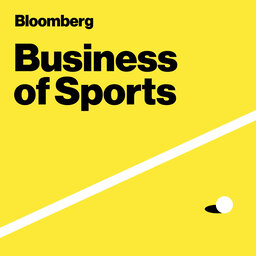Juan Soto Inks Record-Breaking Deal; Velocity Capital Gets Big Investment From Texas
Join hosts Michael Barr, Scarlet Fu and Damian Sassower for a look at some of the latest headlines and stories in the business of sports.
- Juan Soto signs a record-breaking 15 year, $765 million dollar contract from the New York Mets. Bloomberg Opinion columnist Conor Sen argues why the deal is good for the game of baseball.
- Velocity Capital Management founding partner David Abrams and Texas Permanent School Fund CEO and CIO Bob Borden talk the future of alternative investment in sports as several NFL teams announce selling stakes to private equity firms. Plus the Texas Permanent School Fund's anchor investment of $200 million into Velocity's flagship Opportunity Fund.
- Plus, Bloomberg Originals sports correspondent Vanessa Perdomo introduce us to the newest WNBA franchise, the Golden State Valkyries. They have a conversation with Valkyries' general manager Ohemma Nyanin and head coach Natalie Nasake.
In 1 playlist(s)
Bloomberg Business of Sports
Michael Barr, Vanessa Perdomo and Damian Sassower follow the money in the world of sports, taking li…Social links
Follow podcast
Recent clips

Special Edition: Winter Olympic Games Wrap Up
39:21

Instant Reaction: MSG Sports Considering Spinning Off New York Knicks, Rangers
08:54

BONUS: WWE's Logan Paul & Goldin CEO Ken Goldin
09:33
 Bloomberg Business of Sports
Bloomberg Business of Sports